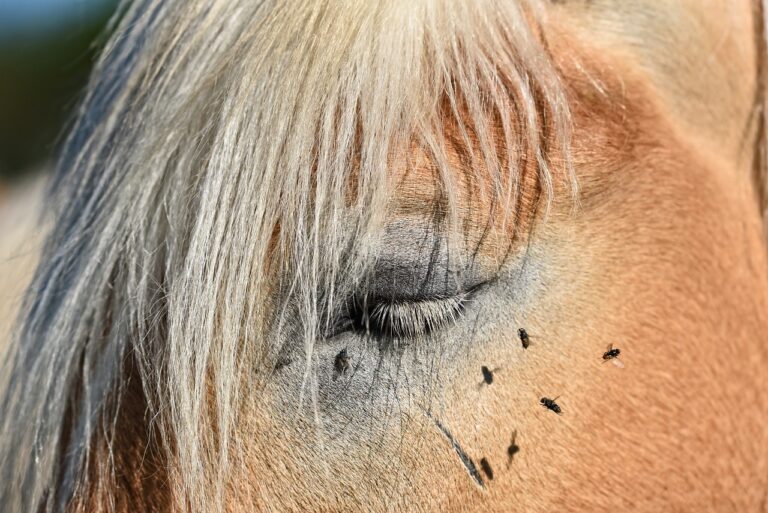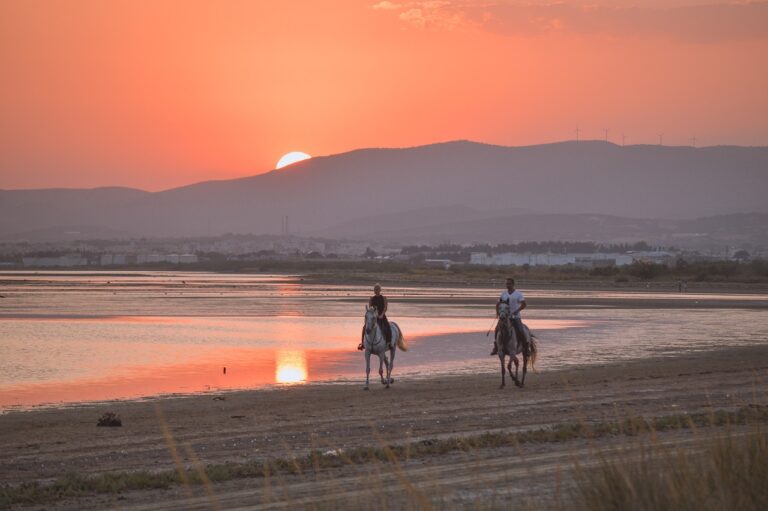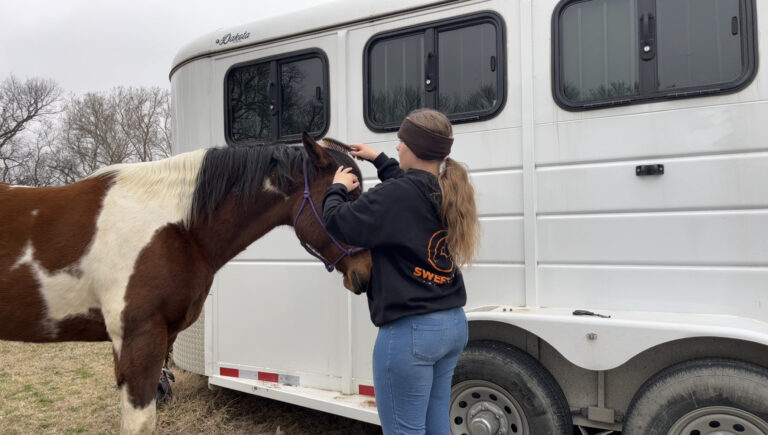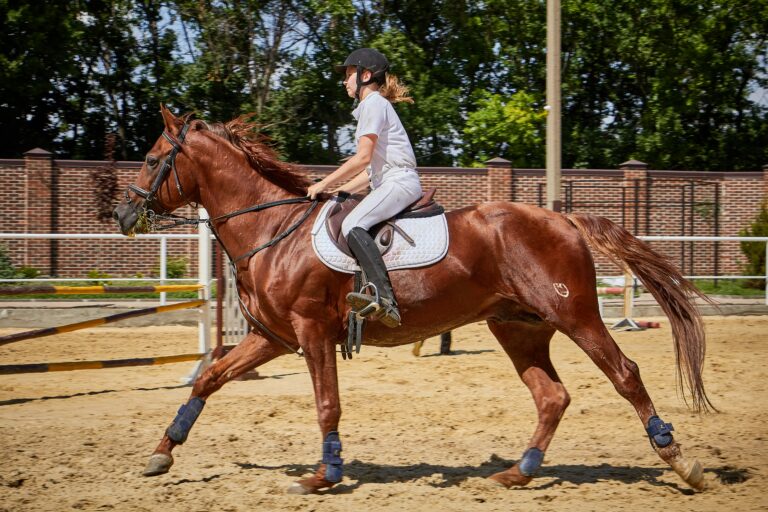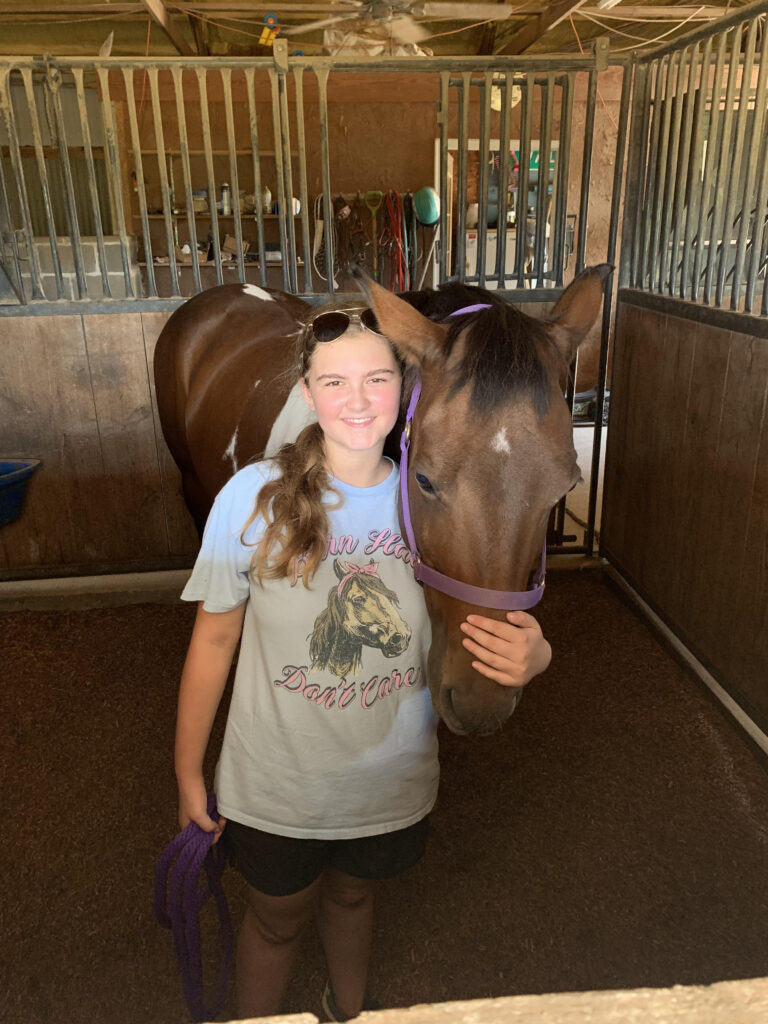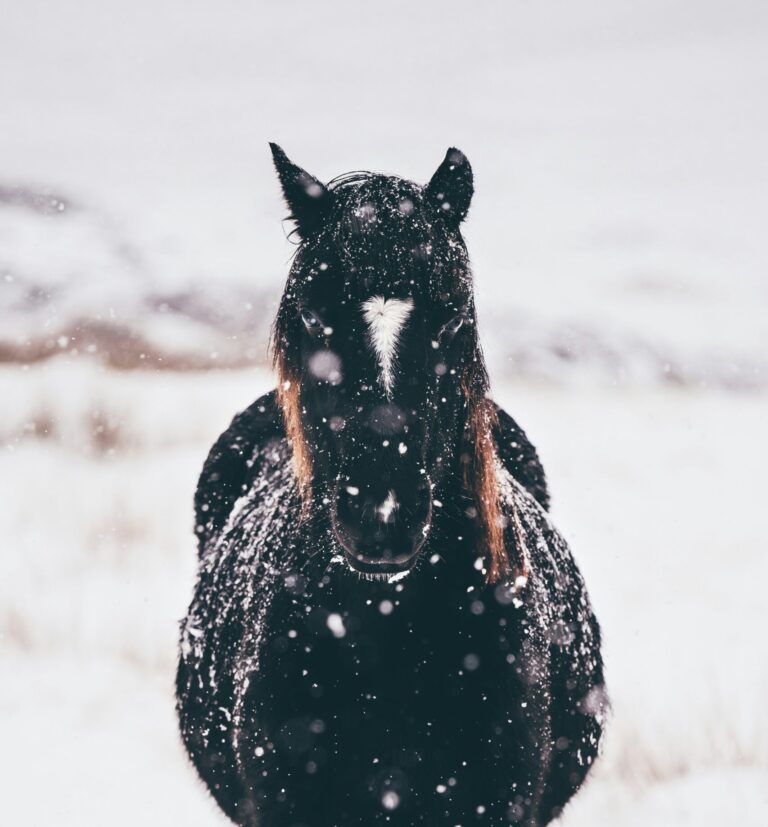Should You Blanket Your Horse This Winter
You may wonder whether or not you should blanket your horse during the winter but don’t worry because in this step-by-step guide I will share tips to help you decide what is best for your horse!
I’ll share benefits and downfalls to blanketing your horse in the colder months of the year.
There is a lot of controversy over if blanketing is better or not. Some people think it is better to let the horse’s do their thing while others like to add a blanket to give their horse extra warmth.
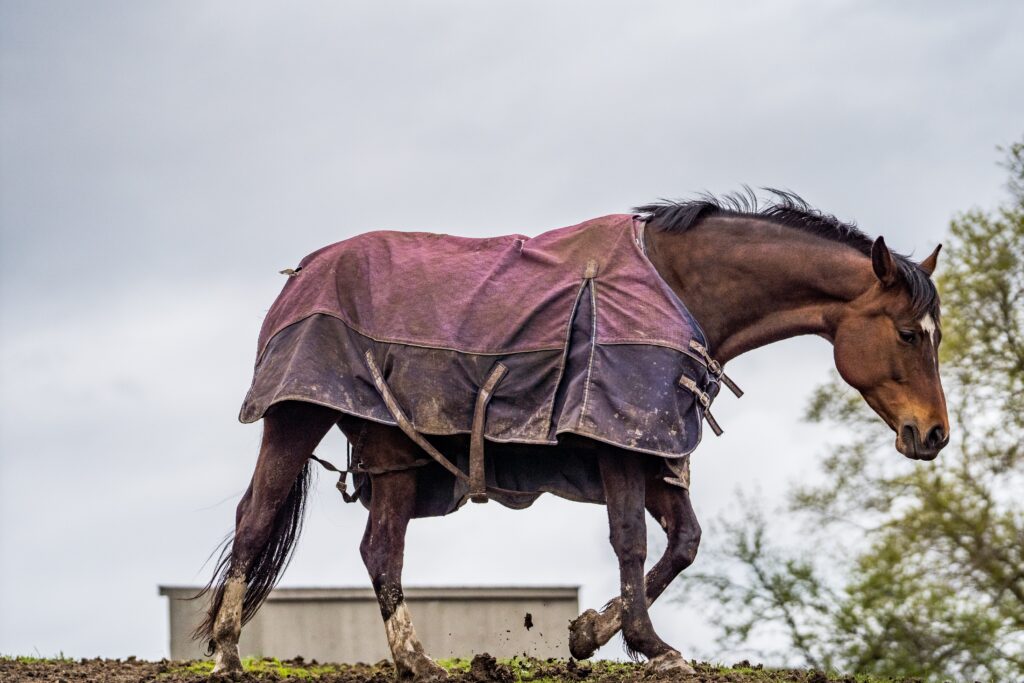
I will share how your horse regulates their body temperature along with different weather conditions that will help you decide what best for your horse.
If you do plan to blanket your horse you want to make sure you use the right weight of blanket for the weather. Just like people with jackets and coats, horses have different levels of warmth in their blankets as well.
Your Horse’s Coat and Natural Abilities
Horses are naturally able to regulate their body temperature through their coat. In the fall, you may notice your horse’s coat getting thicker.
This is their body’s way of preparing them for winter. It occurs when the days transition from longer to shorter.
This longer winter coat provides insulation in the winter before shedding in the spring when it gets warm again.
Some factors such as age, health, and breed can affect the effectiveness of the winter coat. This may mean you need to blanket your horse in the winter.
Some horses have health issues and can struggle to keep a healthy body condition which can affect the in winter coat. Other horses are able to handle cold weather naturally and may not need the added warmth.
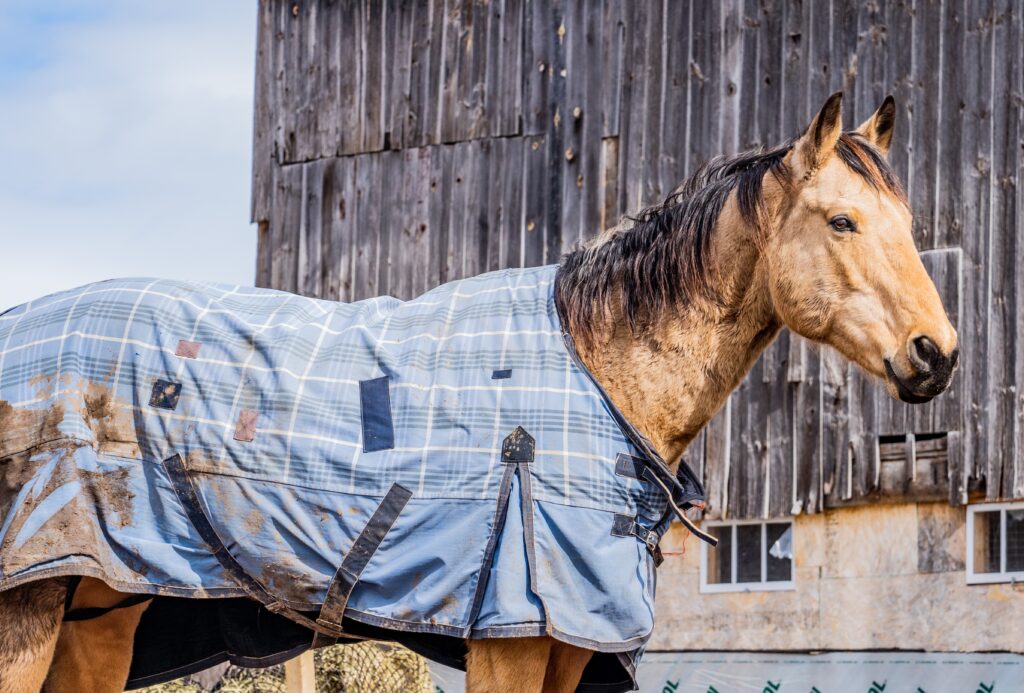
Assessing Weather Conditions
Consider the climate of your area and keep tabs on the severity of the winter that year. Factors like wind, rain, and extreme cold can affect whether or not your horse should be blanketed
In milder climates it may inhibit your horse’s ability to adapt to colder climates but in harsh conditions your horse may benefit from a blanket.
Make sure to monitor the weather conditions regularly to decide when to use blankets and when to let your horse’s coping mechanisms take over.
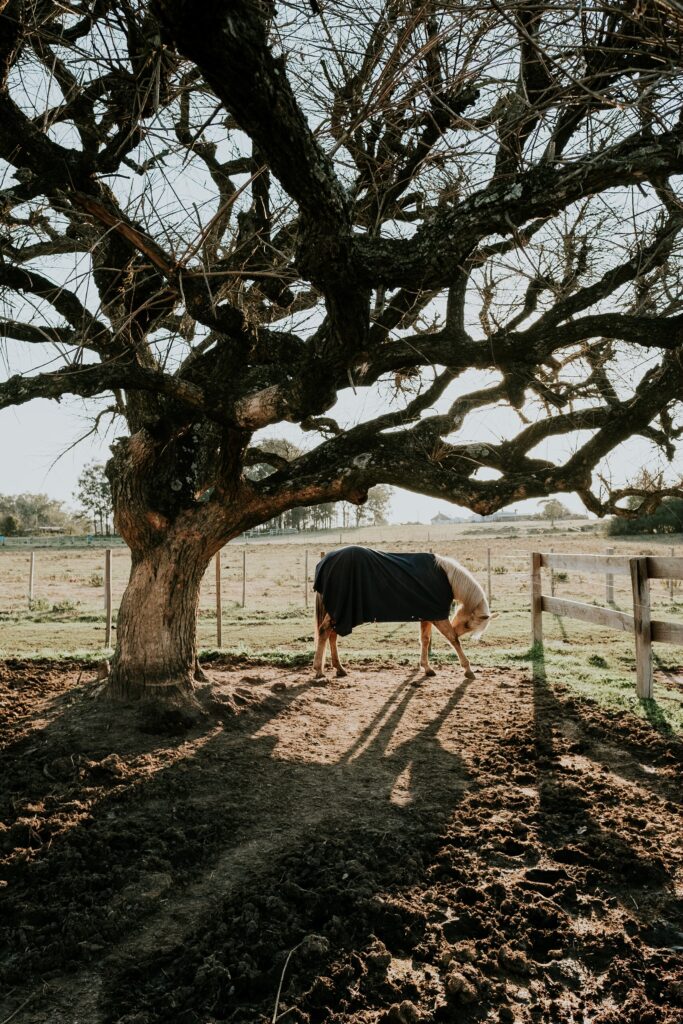
Individual Horse Needs
When trying to answer the question of whether your horse needs a blanket or not you must look at your horse as an individual. You must look at your horse’s health and current lifestyle.
Some questions to think about include:
An older horse that has less energy often has trouble staying warm and may benefit from a blanket. Some breeds also adapt to colder weather better like the Icelandic or Fjord.
If you have blanketed your horse before, thinking about how they did in the past can help in making your decision for this winter.
Also consider your horse’s activity level and if they are clipped because of it. Clipped horses don’t have a winter coat and they must have blankets on to protect them from the cold.
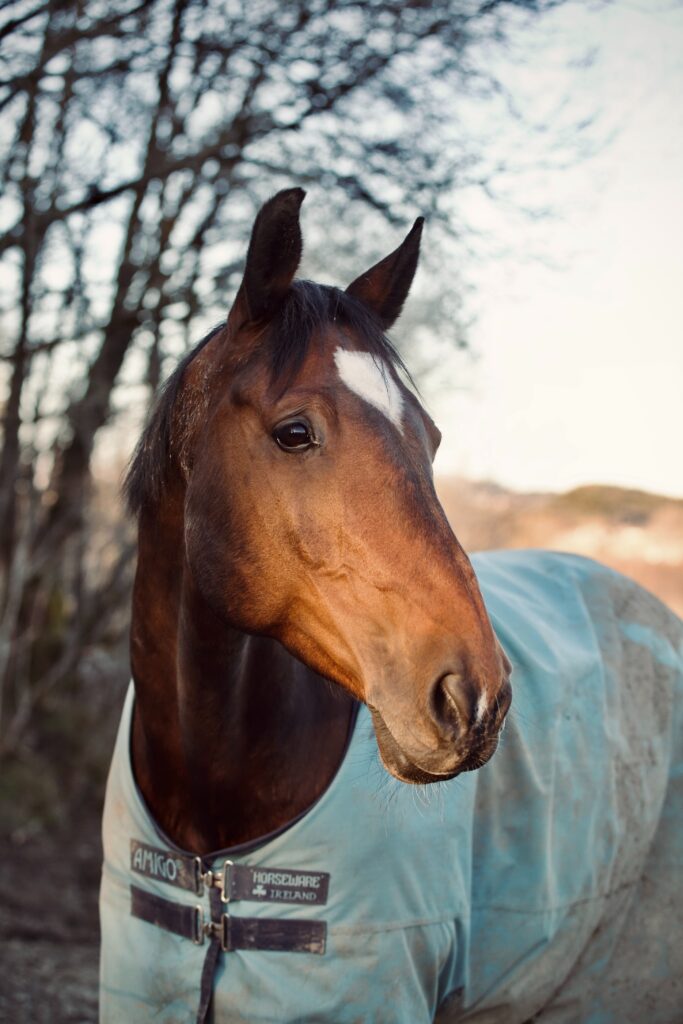
Benefits Of Blanketing Your Horse
Understanding the benefits of blanketing may aid in determining if it would help your horse this winter.
Blanketing provides an extra layer of insulation for your horse in colder weather. It can make your horse more comfortable in rough conditions.
If you show your horse in the winter, blanketing can help keep your horse clean. This will make show preparation easier and less stressful for you.
Keeping your horse blanketed may mean your horse can have more time outside their stable which allows them to bond with other horses and display natural behaviors such as grooming and rolling.
Blanketing can also aid in temperature regulation for horses with health issues and can reduce risk of sicknesses related to the elements.
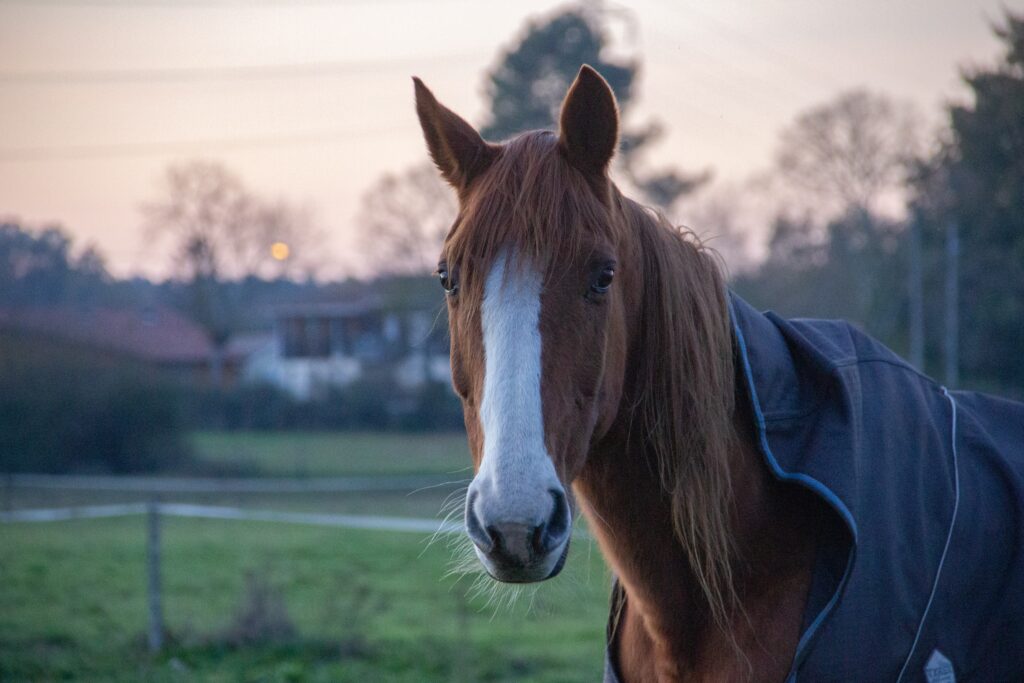
Disadvantages Of Blanketing Your Horse
Now that we looked at the potential benefits of blanketing your horse I’ll share some reasons you may not want to blanket your horse.
One of the major disadvantages of blanketing your horse is the risk of overheating. If you use a heavier weighted blanket then the type needed, your horse could overheat. You have to adjust the type of blanket you use to the current weather conditions.
You will also have to monitor your horse more often. If it gets warmer out, you will need to be ready to take the blanket off to avoid potential health issues.
If your horse is boarded, you may have to pay more or your barn may not allow you to blanket depending on what they provide.
Horses that aren’t properly monitored may have increased safety risks if the blanket isn’t fitted correctly or breaks. This is why you need to look over the blanket every day for rips and tears.
When deciding to blanket your horse, you must be prepared to take into account the disadvantages and if you are properly prepared to handle them.
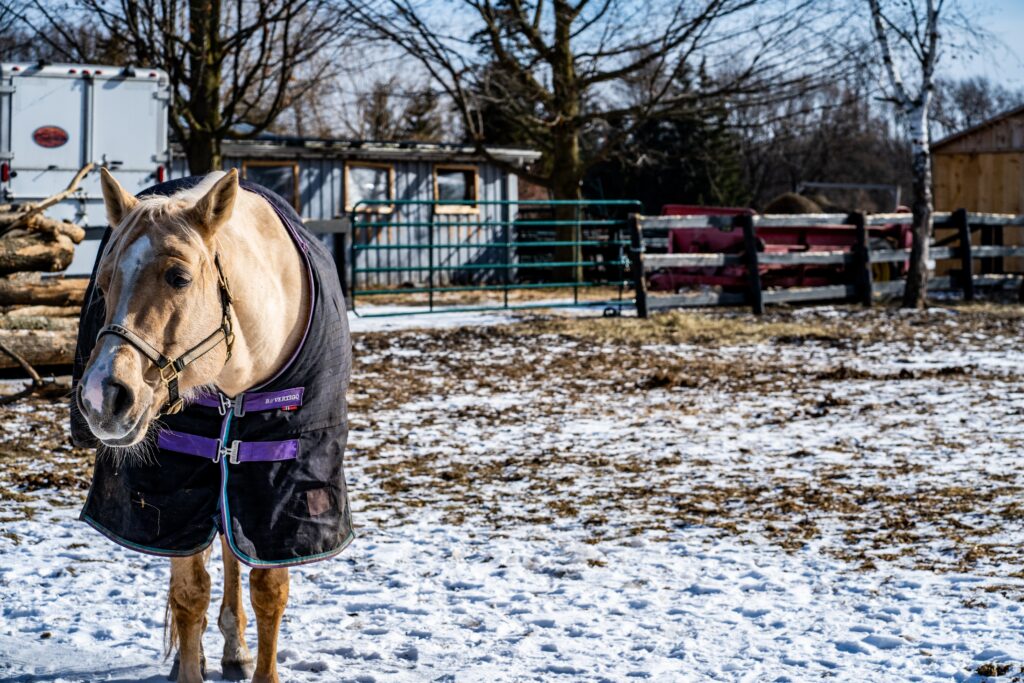
Alternative Ideas
If you decide not to blanket your horse these are some alternative ideas you can use to protect your horse from the elements.
One way is to provide shelter for your horse. This can include a lean-to or run-in shed. This allows your horse to seek shelter when they want to.
Adjusting your horse’s diet can also help protect your horse from the weather. Keep in mind you may need to take other actions along with adjusting feed during winter.
Insider Tip
Your vet may have some good tips and ideas for your horse’s care this winter. They can give advice on your specific situation and needs.
During winter, I add an extra half scoop to my horse’s diet. Horses use energy to create heat and by giving horse’s more feed it can help them produce warmth.
Providing regular exercise can also contribute to your horse producing heat. Make sure your horse isn’t excessively sweating when exercising because this can lead to health problems due to the cold weather.
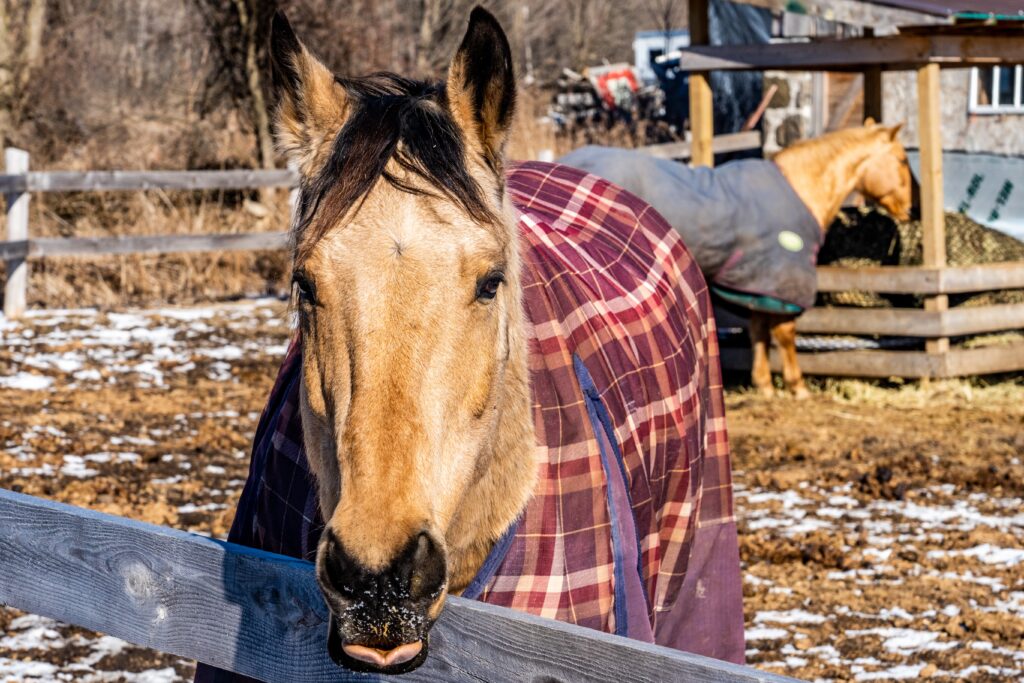
I know that blanketing your horse can be a difficult decision and is based on your horse’s needs but I hope these tips and guide will help you decide what you need and how to go about making your horse feel cozy for the winter.
Let me know what you think and I would love to hear how it goes!

